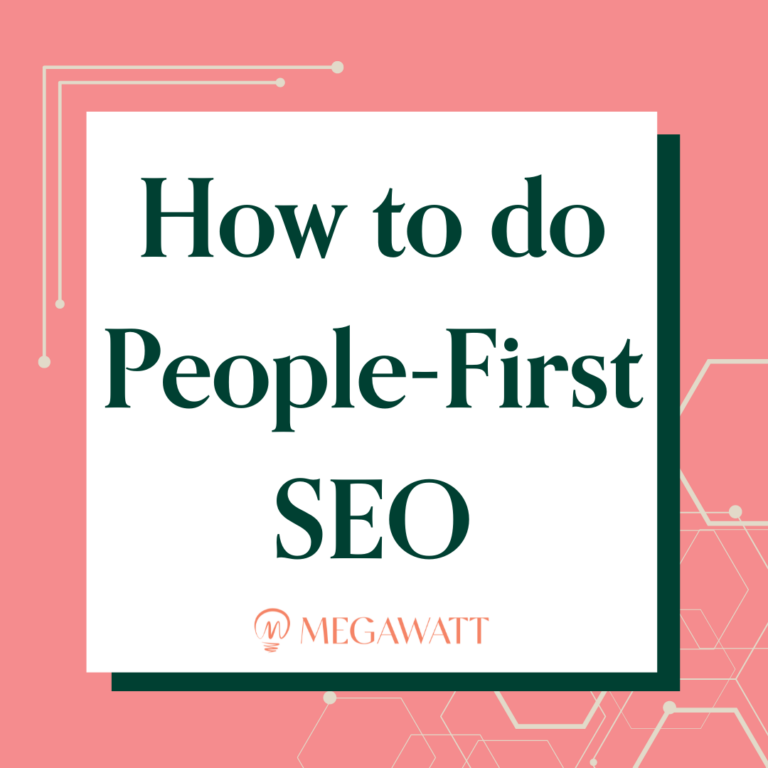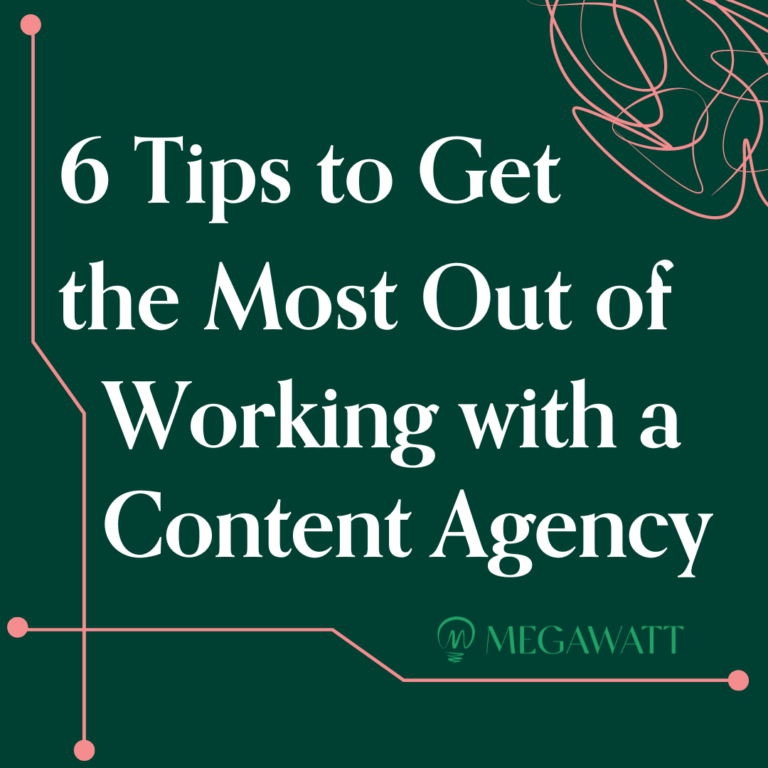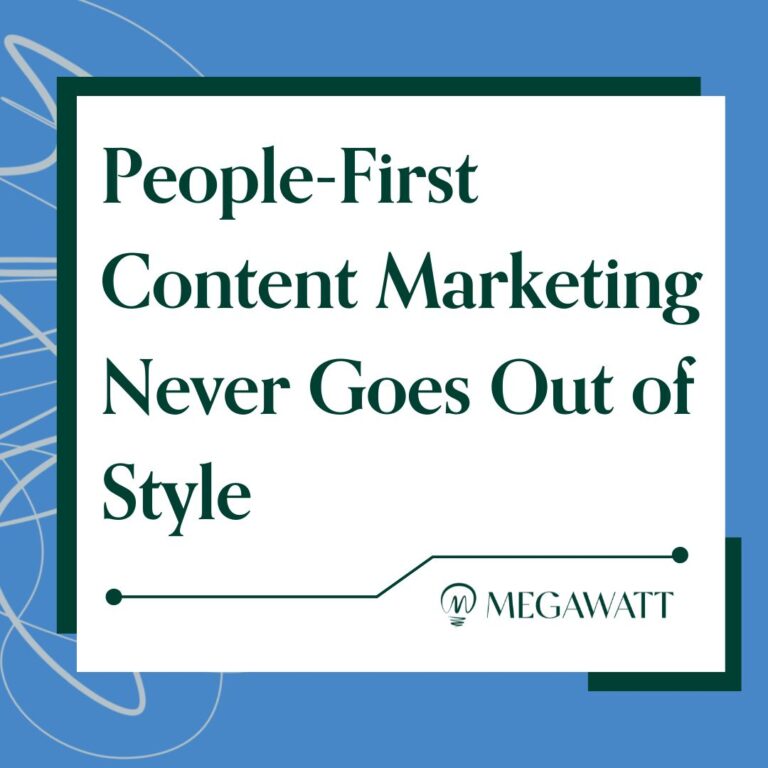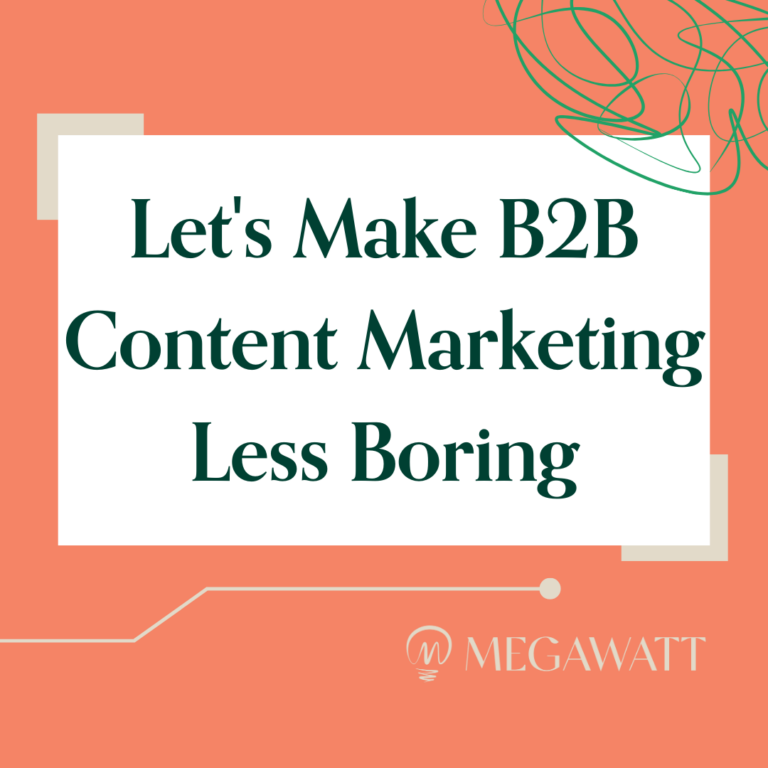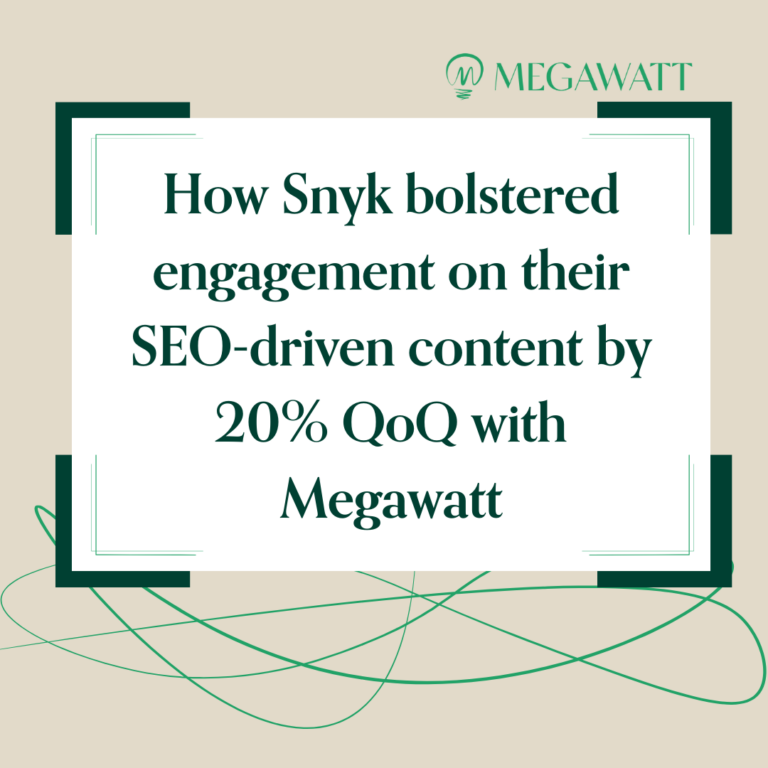Why Every Content Marketer Needs an Editor
Many people associate editing with high school term papers covered in red ink or track changes. Just the sight of inline document edits can make their blood pressure rise. Well, take a deep breath: we are grownups now, and editors aren’t here to bully you for using semicolons. In fact, a great editor is a content marketer’s best friend.
That old grade school trauma may be why some companies treat editing as simply the last hurdle to clear before getting content up on their website. Or worse: they do away with editors entirely in favor of a quick pass through some AI-based typing assistant like Grammarly.
Don’t get me wrong, I love my Grammarly subscription, but this approach is a huge mistake. In a world that’s increasingly embracing automation, a living, breathing, thinking content editor is more important than ever.
Great editors do so much more than fix spelling and grammar. They play a pivotal role in helping marketing content meet its goals by strengthening both writing and writer. Editing is essential to creating strong, compelling content that people want to read.
Here are just some of the ways that editors strengthen both in-house and outsourced (agency) content:
An editor acts as quality control
This is the function most people associate with editors, but it goes far beyond just copyediting for spelling and grammar and calling it good enough.
An editor acts as a safety net to ensure that all the content on your website is of the highest quality. That means closely reading all content, be it blog posts, emails, social media, or something else, to confirm it’s up to standard.
![]()
As a Content Team Lead at Megawatt, I edit multiple pieces of content for my clients each day. During those editing sessions, I consistently check each piece for the following:
- Logic and clarity. Is the piece easy to read and understand? Have we presented a strong thesis, and do we support it in the text?
- Consistency of tone and voice. Is the writing consistent with the rest of the content the brand produces? Some companies use a casual, conversational writing style, while others prefer more formal writing.
- Branding and terminology. Are we using the company’s preferred phrasing to discuss its products and customers?
- Technical accuracy. Are we describing products, processes, and capabilities correctly? This is particularly important with technical content where an obvious inaccuracy can destroy your credibility with your potential customer base.
- Conciseness. Is the writing as clear and straightforward as possible?
- Source accuracy. Are we linking to outside sources where needed, are those sources appropriate, and are the links formatted correctly? Are we including internal links to keep readers on-site?
- SEO. Are we following SEO best practices to enhance our chances of ranking in the SERPs?
- Formatting. Are headers being used correctly, and are they aligned? Are they the correct case? Are we adhering to any formatting specific to the brand?
- Spelling and grammar. Finally, are we following the client’s style guide or AP style?
That’s a lot to get through, but to an experienced editor, it feels like second nature. While writers can (and should) edit their work before submitting it, it’s impossible to catch everything. An editor acts as that second set of eyes to ensure everything is in order so that readers focus solely on the content.
An editor makes sure your content aligns with your strategy
It’s an unfortunate truth for content marketers that strategy often trumps things like creativity and storytelling. Even the coolest, most interesting article is basically useless if it doesn’t help the company achieve its marketing goals.
![]()
A great editor will have a strong understanding of your goals and your strategy for achieving those goals. They’ll ensure each content piece is calibrated to fit that content strategy.
To accomplish this, the editor needs contextual information behind each piece of content. They need to know:
- Target audience. Who do we want to read this content, and what do we hope they will do next?
- Location in the content funnel. Top-of-funnel discovery content will read very differently than bottom-of-funnel conversion content.
- Distribution strategy. Will people discover this content through search, social media, or something else?
- Article goals: Specifically, what is the content supposed to be about, why are we writing it, and how do we intend to approach the topic? This could be as elaborate as a full SEO outline or as simple as a short paragraph: “The sales team asked us to create an article about how our product saves companies money so they can share it with potential clients. We will cover x, y, and z topics.”
Incidentally, this is why a robust content brief is a game-changer: it puts everyone — writer, editor, and internal stakeholders —- on the same page.
An editor armed with the information above can make suggestions to help fine-tune content to achieve the piece’s goals and, by extension, further the company’s marketing goals.
Sign up for Dear Wattson, our weekly newsletter, where all content conundrums are answered!
An editor provides an objective perspective
While you may care a lot about your strategic marketing goals, your target audience really, really does not. They only care about getting the information they need. And if reading through your content is a slog, it only takes one second to click away somewhere else.
That’s why an editor needs to take the role of advocate for the reader. Editors safeguard that customer experience by promoting readability at all costs. A close read by an editor can surface knowledge gaps, vagaries, or leaps in logic that might confuse or confound a reader. It can also help eliminate irrelevant tangents that might bore them.
An editor is a thought partner
Ever stare at a piece of writing so long the words stop making sense? A good editor makes sure the message shines through by providing an unbiased and fresh perspective.
We know that diversity of thought strengthens workplaces; the same is true for the written word. Working with an editor adds diversity of thought to a piece of content by testing it against a second person’s perspectives and lived experiences.
Editors ask questions that help writers think more deeply about their words. They poke holes in arguments and suggest how to plug those holes back up.
The best editor-writer relationships are not a one-way process. They are a conversation between two people working together to create the most robust content possible. Editors make a suggestion; writers push back, and so on. If nobody gets defensive and everyone is open to feedback, it can be a wonderful collaborative experience.
Editors help writers grow
Hiring a content marketer (or an agency) is an investment not just in a writer you like right now but in a writer that will continue to improve and evolve alongside your product. Editors are how you cultivate that investment.
A great editor is also an educator. They know their writer’s writing styles, shortcomings, and strengths and work closely with them to help them improve. And, of course, unless you’ve found the Toni Morrison of content marketing, there is always room to improve.
![]()
Grammarly cannot tell you the WHY behind an edit. It can only correct you without context (and sometimes, that missing context makes its suggestions incorrect!). Editors can collaborate with a writer to teach them how to avoid passive voice, the best way to structure an argument, how to use a semicolon, and so much more
All content marketers will admit that there are days when writing is a slog. Great editors push writers when they see them slacking and help when they see them struggling. They can keep a piece moving forward when a writer is stalled out.
Content is a team sport
One of the wisest editors I know told me this, and I’ve repeated it ad nauseum during my career as a writer, strategist, and editor: Content is a team sport.
Writing may seem like a solitary activity, but the number of people it takes to get that writing from rough draft to publishable piece can be formidable: strategists, writers, SMEs, and content editors, at the very least.
Nothing happens in a void, and writing certainly shouldn’t. Hiring strong writers and supporting them with experienced editors is the key to ensuring good ideas shine and do not get lost in bad writing. And that’s something AI cannot do.
Ready to create stronger marketing content but not ready to hire an entire team of writers and editors? We can help!
